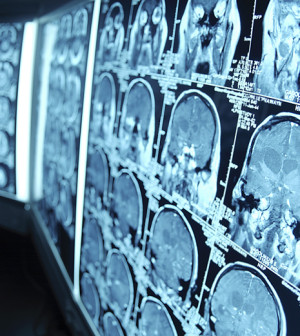- Could Your Grocery Store Meat Be Causing Recurring UTIs?
- Are You Making This Expensive Thermostat Error This Winter?
- Recognizing the Signs of Hypothyroidism
- 10 Strategies to Overcome Insomnia
- Could Artificial Sweeteners Be Aging the Brain Faster?
- Techniques for Soothing Your Nervous System
- Does the Water in Your House Smell Funny? Here’s Why
- Can a Daily Dose of Apple Cider Vinegar Actually Aid Weight Loss?
- 6 Health Beverages That Can Actually Spike Your Blood Sugar
- Treatment Options for Social Anxiety Disorder
To Protect Your Aging Brain, Start With Exercise

There are things people can do to preserve their brain function as they age, a report released Tuesday from the Institute of Medicine (IOM) suggests.
“Changes in mental functions and capabilities are a part of aging and occur with everyone,” report committee chair Dan Blazer, a professor of psychiatry emeritus at Duke University Medical Center in Durham, N.C., said in an IOM news release.
“The extent and nature of these changes vary widely and are gradual, and aging can have both positive and negative effects on cognition [thinking skills]. Wisdom and knowledge can increase with age, while memory and attention can decline,” he said.
But the committee said there are things people can do to promote brain health. These include being physically active, and reducing and managing heart disease risk factors such as high blood pressure, diabetes and smoking.
It’s also important to have regular discussions with a health care professional about any health conditions and medications that might harm brain function, they added.
Other actions that may help protect an aging brain include being socially and intellectually active, and always trying to learn new things. Getting enough sleep and seeking help for sleep disorders if necessary can also make a difference, the report found.
People should also carefully evaluate any products — including medications, supplements and training programs — that claim to improve thinking, the committee advised.
There is conflicting evidence about the possible brain benefits of crossword puzzles, joining a book club, playing card games or learning to play a musical instrument, the committee found. And there is little evidence that vitamins and supplements marketed for brain health do any good.
“We are only really beginning to understand how the brain changes with age,” Victor Dzau, president of the IOM, said in the news release. “As the population of older Americans grows, so will the effects of cognitive aging on society. By calling attention to this issue, we can learn more about the risk and protective factors and needed research so older adults can better maintain their cognitive health to the fullest extent possible.”
The IOM is an independent organization that provides the U.S. government with expert guidance on health issues.
More information
The Alzheimer’s Association has more about brain health.
Source: HealthDay
Copyright © 2026 HealthDay. All rights reserved.










